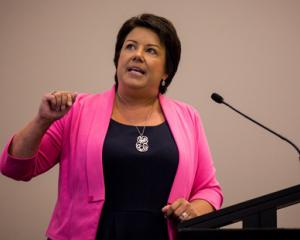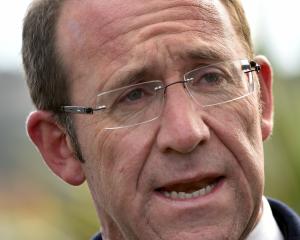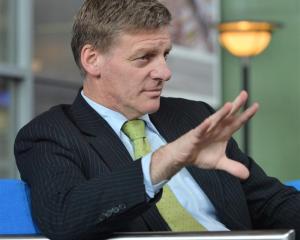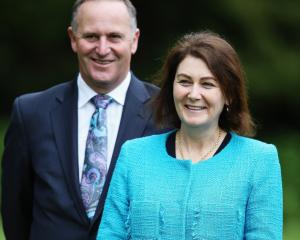
A ruling party heavyweight with impeccable economic credentials, English is the hot pick to take over the Prime Minister's job after John Key on Monday announced his shock resignation and endorsed English as his replacement.
English, a former Treasury Department analyst who is also deputy leader of the ruling National Party, said he would decide within days whether to stand Mr at a special December 12 caucus meeting.
"I think it's in the interest of continuity and stability of the government that the issue is dealt with over the next week," Mr English told reporters within hours of Mr Key's shock announcement.
"This is a caucus that has been together for a while. They know what they are looking for, it won't take them too long to figure it out."
Mr English's caution may stem from a brief but bruising period as leader of the National Party, which was thrashed by Helen Clark's centre-left Labour Party in the 2002 election.
Mr English had been leader for barely a year and lasted barely one more before being ousted by former central bank governor Don Brash.
"In the last 10 years, I've had a masterclass every day about how to do politics, but in the end the caucus will decide," Mr English said on Monday when asked about the experience.
VERY COMPETENT, NOT VERY COLOURFUL
Sir Michael Cullen, a former Labour deputy prime minister and finance minister who was succeeded by Mr English, said his one-time rival's somewhat unusual background coming from a conservative, Catholic farming family in New Zealand's deep south was crucial to understanding him.
"That makes an interesting person who has a social conscience but also very much a believer in small government and people doing their own thing," Mr Cullen told Reuters.
Mr English wouldn't have Mr Key's "extraordinary capacity to empathise and communicate" but would likely maintain continuity with most of Mr Key's policies, he added.
"I think he would be less focussed on tax cuts as the prime target for fiscal policy, probably taking the view around debt reduction and maybe contributions around the superannuation (pension) scheme."
Mr English has held several ministerial posts across education, health and finance since he joined parliament in 1990.
He and Mr Key won plaudits for their management of the $NZ240 billion economy in the aftermath of the global financial crisis and two devastating earthquakes near Christchurch.
"Assuming that Bill English becomes the leader I think he will be a very stable but not a very exciting Prime Minister," Bryce Edwards, lecturer in politics at the University of Otago.
"He is not very colourful, not very dynamic but he is very competent and relatively intellectual. He is not a radical so will keep the status quo."
KEY'S POPULARITY TOUGH TO MATCH
Among Mr English's key policies as finance minister were moves to partly privatise several state-owned energy firms and Air New Zealand, cutting personal tax and corporate tax rates and increasing the goods and services tax.
Mr English was criticised in 2009 when news surfaced that he had organised his affairs so that he could receive almost $NZ1000 a week from taxpayers for he and his family to live in their $NZ1.2 million Wellington home.
He dismissed the reports but eventually repaid $NZ32,000 and gave up his taxpayer-funded housing allowance in a bid to end the growing controversy.
Other potential candidates include senior cabinet minister Steven Joyce, and Judith Collins, the minister for police and corrections, who has told local media she would not rule out running.
Mr Key's popularity will be hard to replicate whoever takes over.
While Mr Key's popularity has fallen from record levels of a few years ago, he was still at 36% for preferred prime minister in the latest 1 News Colmar Brunton poll, versus 8% for Labour leader Andrew Little and less than 1% for his National Party cohorts English, Joyce and Collins.












